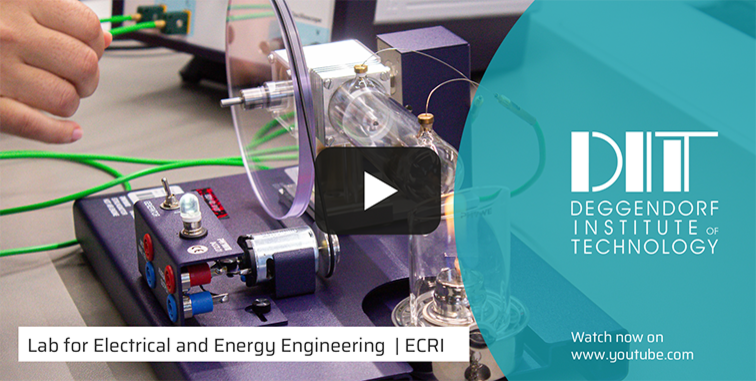be an expert of energy & resource efficiency
become a sustainable engineer
#count%
of all dit graduates
will find a job
within 2 months

be an expert of energy and resource efficiency
Those who are interested in a career in the field of energy and resource efficiency will soon become aware that both a sound technical and economic knowledgebase is necessary. Those who are also interested in renewable energies, engineering and its maintenance, repair and operation in connection with economic viability and project management, are suited to the Bachelor of Industrial Engineering programme. These particular aspects are the focus of this bachelor degree in Industrial Engineering / Maintenance and Operation at the European Campus Rottal-Inn in Pfarrkirchen.
A particular emphasis will be on the acquisition of fundamental knowledge in the areas of maintenance, repair and operation engineering and management. This includes topics such as sustainability, renewable energies, process and operation technology, IT in plant and equipment engineering (Industry / Energy 4.0) as well as in leadership, investment and financing, business and operational processes, logistics and in maintenance, repair and operation strategies and planning. A further important component of the programme is the development of language and intercultural competencies, including the specialisation on a particular cultural and economic region.
Graduates of this degree programme will possess the best qualifications and know-how to work in national and international enviroments in fields such as facility planning and engineering; service and maintenance engineering; maintenance, repair and operation management as well as in controlling for technical fields and in project management.
fact sheet industrial engineering
Degree: Bachelor of Engineering (B.Eng.)
Duration: 7 Semester (3.5 years)
ECTS points: 210
Start: October (winter semester)
Location: European Campus Rottal-Inn, Pfarrkirchen
Taught in: English
Application period: 15 April - 15 July
Admission requirements:
- General German university entrance qualification, or please check your eligibilty at the DAAD if you own an international qualification
- Language requirements
Prerequisites: Knowledge of basic mathematics and natural sciences is an advantage
Application procedure:
- Applicants have to take an Academic Readiness Assessment test and provide the result certificate in supplement to the other documents required for application
- Read step by step of how to apply
Tuition fees:
- No tuition fees, only student union fee
- International students from non-EU/EEA countries are required to pay service fees for each semester. Click here to read about our service fees.
Contact:
- General info on studying at DIT: prospective student advisors
career prospects
The range of career prospects and application areas for industrial engineers is extremely extensive. From system configuration, project management and project controlling to innovation management, technical purchasing, sales, organization and logistics to service and maintenance engineering and maintenance management.
This degree offers students a combination of business, engineering and linguistic-cultural course content, providing a solid basis for success in the international environment. This course qualifies graduates to be capable of adapting existing and newly designed processes, methods and technologies so that energy and material resources can be saved. Thereby, future graduates will make a significant contribution in achieving the European Union objective of industrial decarbonisation.
Potential employers can be found in all sectors: from the public sector and public utilities such as electricity, gas, heat and water utilities, to industrial companies carrying out industrial processes for production. In particular, industrial companies in the Bavarian Chemical Triangle which operate a large number of chemical-technical production processes, offer excellent career opportunities for graduates. Furthermore, industrial engineers are professionals in consultancy companies, whilst MRO engineers find excellent employment prospects in power engineering management of large scale buildings and properties.
The growing renewable energy branch provides graduates of the Industrial Engineering Bachelor programme with excellent opportunities for a secure professional future.
Course Objectives
The Bachelor programme in Industrial Engineering with a focus on “Maintenance Operation and Repair” (MRO) aims to offer a comprehensive interdisciplinary qualification in the knowledge-intensive fields of engineering and business administration through practice-oriented instruction based on scientific methods. It is also the goal of the programme to impart technical, methodological and social competencies which enable graduates to apply scientific knowledge and methods and to act responsibly in both business operations and in society at large as an employee or as an entrepreneur.
The students also gain social and international competencies which enable them to act competently in a complex, intercultural economic landscape; particularly in the energy and resource sector. Against a backdrop of increasing economic internationalisation, international aspects; the development of language competence and at least a one-semester stay abroad are of particular importance.

I chose to pursue a bachelor's degree in Industrial Engineering because it perfectly combines my interests in technical and economic subjects. The program’s comprehensive and interdisciplinary training opens up a wide range of career opportunities, particularly in sectors like automotive and renewable energy. The practical orientation of the degree ensures that I gain hands-on experience, preparing me effectively for future professional challenges.
Bengisu, Student Bachelor Industrial Engineering
Do you have questions about the degree program or student life at DIT? Then feel free to contact Bengisu or one of our Student Ambassadors directly.
subject overview
Overview of the courses (From the Study and Examination Regulations, WS 15/16), Weekly Semester Hours (SWS) and ECTS (European Credit Transfer and Accumulation System) for the Bachelor's degree Industrial Engineering.
New curriculum starting in WS 2022/2023:
| 1. Semester | SWS | ECTS |
| Analytical Principles of Engineering | 4 | 5 |
| Informatics for Engineering 1 | 4 | 5 |
| Chemistry | 4 | 5 |
| Principles in Business & Economics | 6 | 5 |
| Basics - Scientific Writing | 1 | 2 |
| Accounting | 4 | 5 |
| Foreign Language 1 | 4 | 4 |
| 2. Semester | SWS | ECTS |
| Lab Work in Chemistry | 2 | 2 |
| Scientific Writing, Research Methods and Project Management | 3 | 3 |
| Mathematics for Engineering | 4 | 5 |
| Informatics for Engineering 2 | 4 | 5 |
| Technical Mechanics | 4 | 5 |
| Physics | 4 | 5 |
| Scientific Compulsory Elective Subject (AWP) I | 2 | 2 |
| Foreign Language 2 | 2 | 2 |
| 3. Semester | SWS | ECTS |
| Lab Work in Physics | 2 | 2 |
| Applied Mathematics | 4 | 5 |
| Fundamentals of Electrical Engineering | 4 | 5 |
| Intercultural Management | 4 | 5 |
| Sustainability | 4 | 5 |
| Business Law | 4 | 5 |
| Foreign Language 3 | 4 | 4 |
| 4. Semester | SWS | ECTS |
| Financing | 4 | 5 |
| Logistics and Operations Research | 4 | 5 |
| Technical Mechanics 2 | 4 | 5 |
| Energy Technology | 4 | 5 |
| Fundamentals of Measurement and Control Engineering | 4 | 5 |
| Foreign Language 4 | 2 | 2 |
| Scientific Compulsory Elective Subject (AWP) 2 | 2 | 2 |
| 5. Semester | SWS | ECTS |
| Process Safety | 4 | 5 |
| Applied Measurement and Control Engineering | 4 | 5 |
| Plant Engineering | 4 | 5 |
| Management | 4 | 5 |
| Renewable Energies | 4 | 5 |
| Project Work | 6 | 5 |
| 6. Semester | SWS | ECTS |
| Internship | 26 | 26 |
| PLV 1 | 2 | 2 |
| PLV 2 | 2 | 2 |
| 7. Semester | SWS | ECTS |
| Compulsory Elective 1 | 4 | 5 |
| Compulsory Elective 2 | 4 | 5 |
| Compulsory Elective 3 | 4 | 5 |
| Bachelor Thesis incl. Bachelor Seminar | 14 | 15 |
| *Compulsory Elective 1-3: Students must aquire 15 ECTS credits from the "Pool of Electives 1-3" |
Compulsory Electives:
Engineering:
- Process Engineering
- Data Acquisition and Processing
- Industrial Automation and Information Technology
- Modelling Theory
- Energy and Resource Efficiency
- Process Optimisation
- Advanced Fluid and Energy Technology
Business:
- Globalisation
- Energy Markets
- Business Planning and Start-up Management
- Operational Processes





